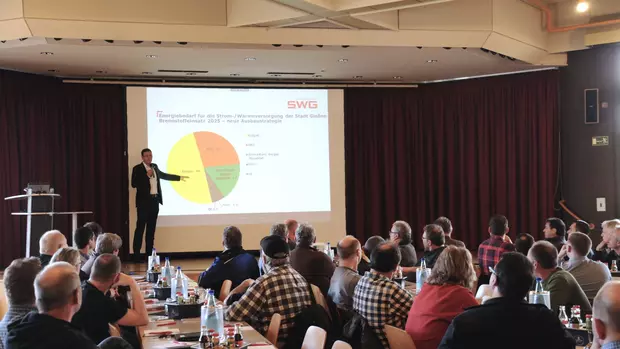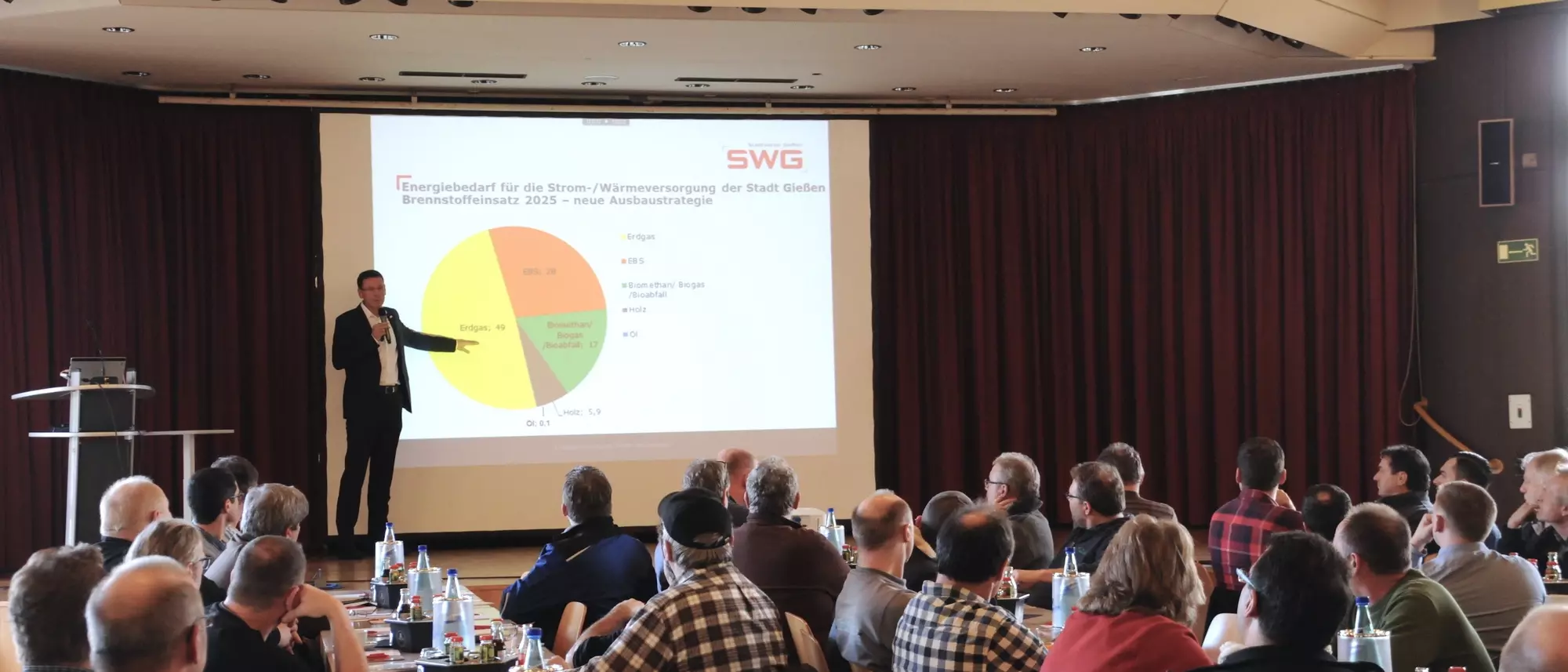
Whether water or gas pipes - installation, maintenance and servicing require experienced specialists and cooperation between tradesmen and energy suppliers. Stadtwerke Gießen has been working closely with plumbers from the region for many years. Information events such as the one held on 9 March in the Kleinlinden community centre promote a professional exchange on current challenges.
Trade professionals such as electricians, gas fitters and plumbers must always keep up to date - both technically and legally. They receive regular support from Stadtwerke Gießen (SWG), which works closely with installation companies in the region. On 9 March, SWG once again provided information on relevant developments. Around 100 installers and chimney sweeps came to the Kleinlinden community centre to find out more about the innovations in smart electricity meters and the switch from L-gas to H-gas.
"We are delighted that the event attracted so much interest. It is important to us to help companies in the region with the challenges they face. With this cooperation, we are creating the basis for mastering the energy transition and the associated tasks here on site together," emphasised Jens Schmidt, Commercial Director of SWG, in his welcoming address.
Conversion to smart metering systems
One of the topics at the event in Kleinlinden was the new Metering Point Operation Act. "The law has recently come into force and regulates, among other things, the installation and use of smart meters. The new technology should be installed and used across the board by 2032," explained Michael Baier, Group Manager for Metering Point Operation at SWG. In his view, close cooperation between the installation companies and SWG's network subsidiary, Mittelhessen Netz GmbH (MIT.N), will play a key role in ensuring that everything runs smoothly.
Conversion to higher calorific natural gas
Wolfgang Döring, who is responsible for the project at SWG, addressed the second major challenge in the coming years - the conversion from L-gas to H-gas. He began by explaining the background: "We currently still cover around 25 per cent of our natural gas requirements in this country from German and Dutch sources. However, these natural resources are slowly running out and the Netherlands wants to reduce its production. For the future, this means that more and more fuel will have to come from Russia, Norway or the Middle East."
This is not without consequences. If more gas flows from Russia to Germany in future, this will require major investments in the network: Almost 300 kilometres of pipelines and numerous compressor stations will have to be built or converted. This is not the only hurdle. Up to 5.6 million gas boilers, instantaneous water heaters, cookers and boilers in around 4.5 million German households will also have to be converted - increasingly in the north and west of the country. Wolfgang Döring explained the reason for this: "The so-called L-gas from domestic and Dutch deposits has a lower energy content than so-called H-gas from Russia and Norway. In each network area, either one or the other fuel flows exclusively through the pipes - in northern and western Germany, L-gas is used more frequently." Installers must adjust all appliances in the household accordingly. In most cases, it is sufficient to replace the nozzles, change the electronic settings or adjust the air supply. The number of estimated 450,000 conversions per year throughout Germany alone illustrates the size and importance of the project. Around 35,000 households are affected in the Mittelhessen Netz GmbH grid area. "It will be our turn in 2019 and 2020 - first in Staufenberg and then in the rest of the network area. Customers will be informed in good time by us and our partner companies when exactly the necessary work is due to be carried out," said Wolfgang Döring.

